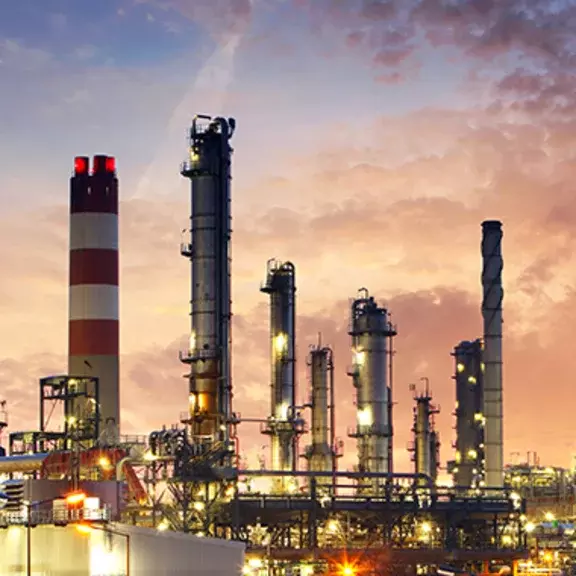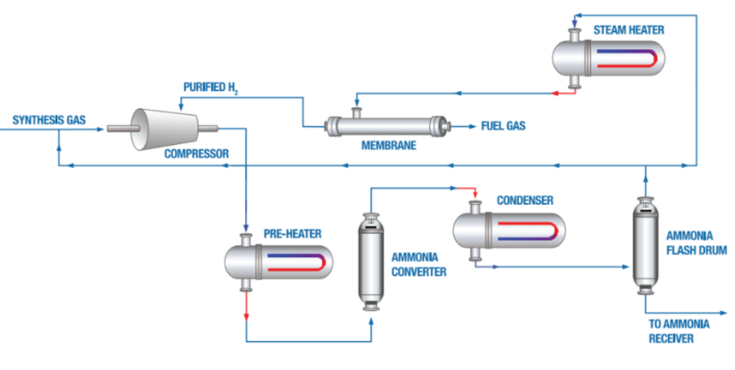Ammonia Purge Gas Applications
Purification and recovery of hydrogen in ammonia synthesis loops
Overview
Air Liquide Advanced Separations’ (ALaS) membranes are specially designed to recover high concentrations of hydrogen while rejecting inert gases from ammonia purge gas streams. With superior chemical resistance, high temperature tolerance, and the ability to withstand transmembrane pressures greater than 90bar, ALaS membranes are the most selective commercially available polymeric membranes.
The Technology
Hydrogen (H2) is selectively separated from nitrogen (N2) by permeation through a polymeric hollow fiber membrane. The driving force is the partial pressure difference across the membrane for H2, N2 and other gas components. H2 is the “fast” gas, whereas methane (CH4) and N2 are “slow” gases. The pressurized feed gas enters the bundle from the shell side; the nitrogen, methane and argon stay under pressure while the H2 is collected at a lower pressure from the fiber bore.
-
H2 Ammonia Synthesis
Download the document PDF (545.86 KB) -
Hydrogen Membrane Overview
Download the document PDF (5.56 MB)
Advantages
- Minimized inert gas purge and hydrogen losses
- Increased ammonia production & decreased natural gas consumption
- No upstream water wash unit required
- Low CAPEX, minimal OPEX and no moving parts
01 Reliable
- ALaS is the only manufacturer of polymeric membranes that can tolerate high concentrations of dry ammonia
02 High Performance
- Our membranes sustain the highest level of inert rejection paralleled with the highest level of hydrogen recovery
Request information
Paul Terrien, Director, Hydrogen and Helium Membrane Business Units
Contact by phone +1 781-228-3261
Related applications
Air Liquide Advanced Separations’ (ALaS) hollow fiber membranes offer the most robust solution for hydrogen purification needs.

